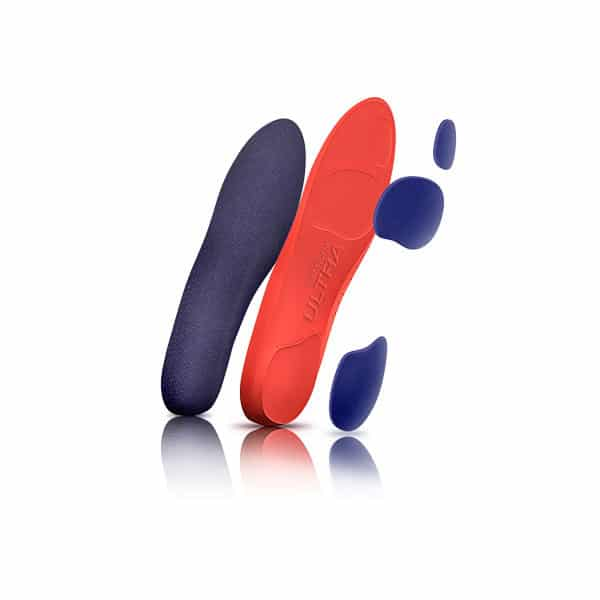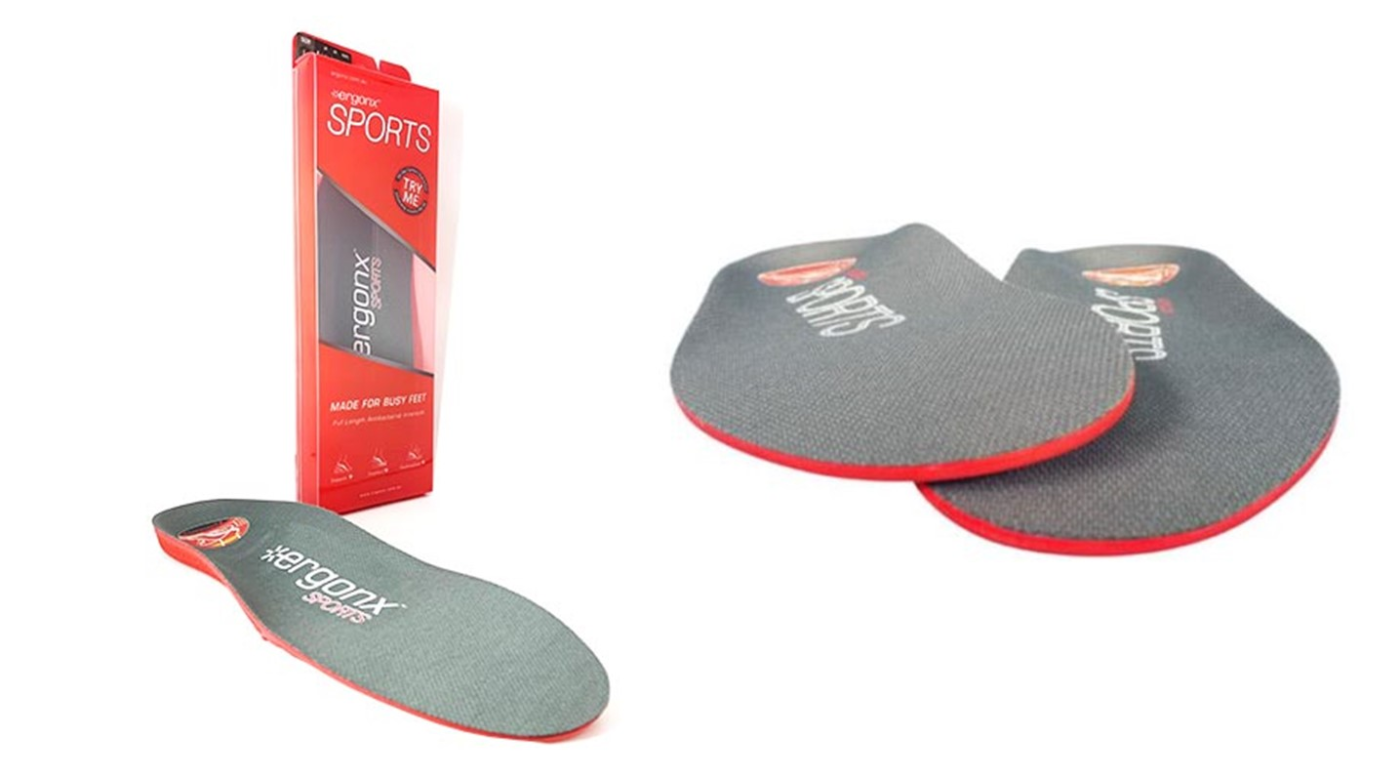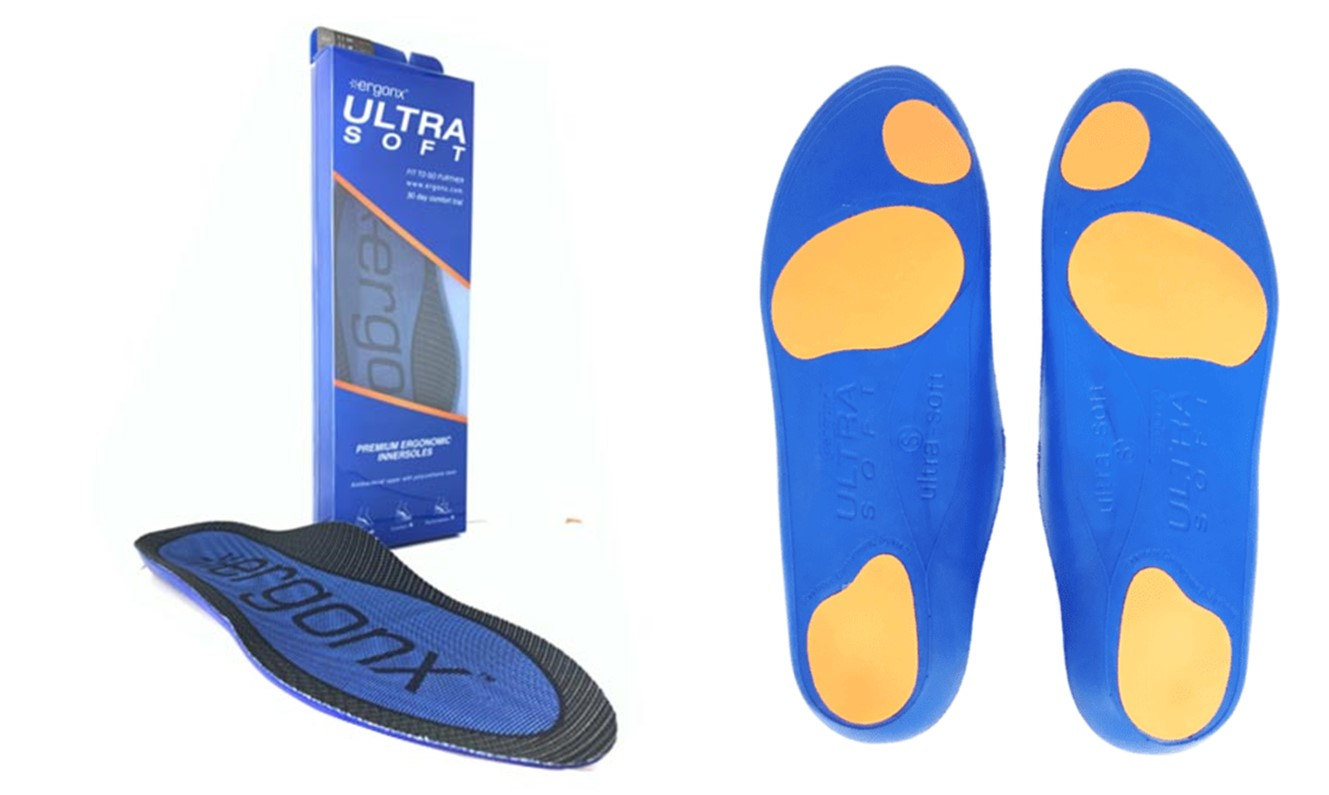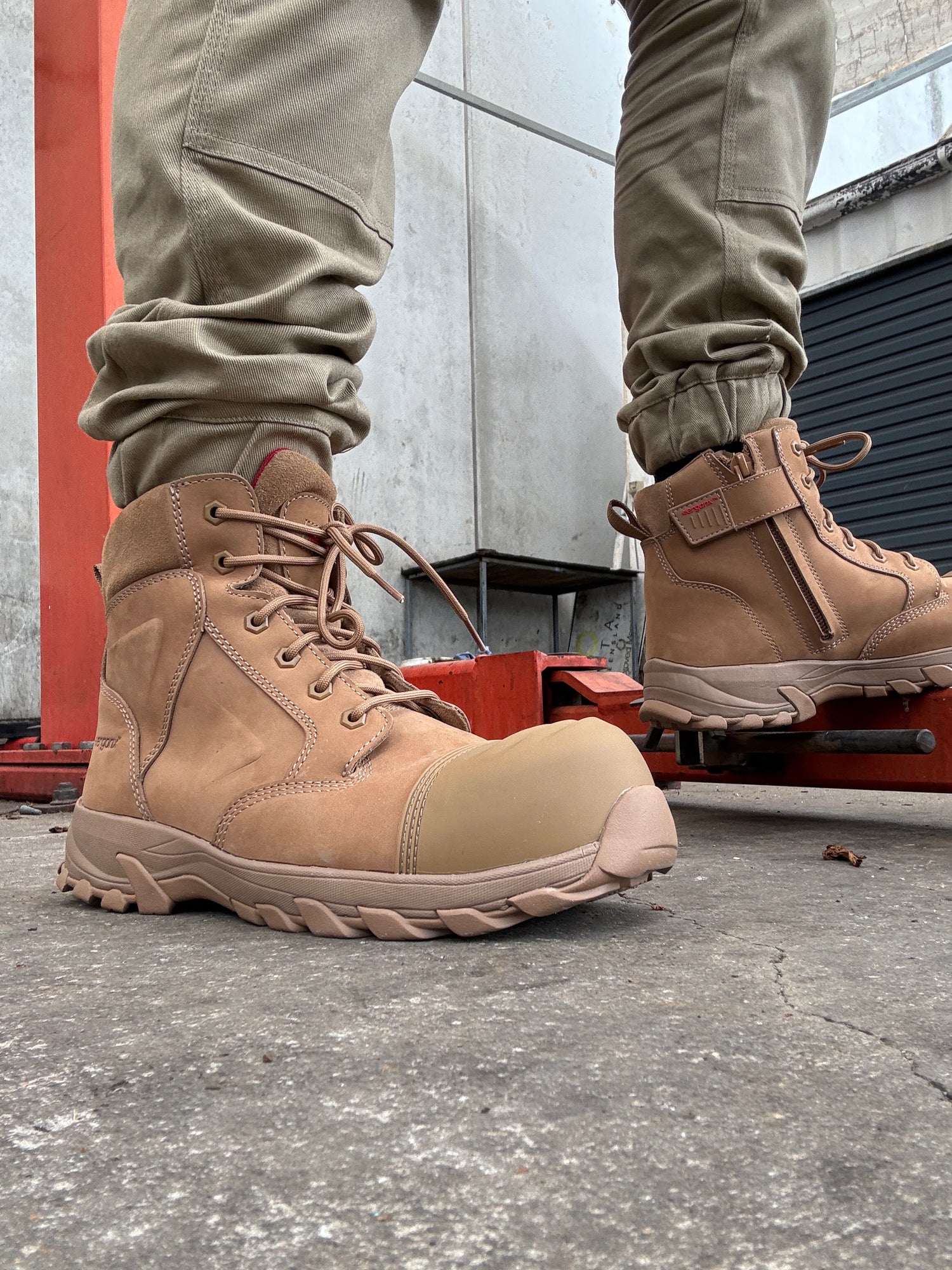Best Orthotic Insoles for Pronated or Flat Feet
HOME / ORTHOTIC INSOLES / ORTHOTIC INSOLES FOR PRONATED FEET
What are pronated feet?
Feet that pronate are feet that have a tendency to roll inwards when they hit the ground. Pronation, in itself, is a natural rotation of the foot, but when it occurs in excess, complications can arise in the foot, lower limbs, hip, and even the lower back.
Feet that overpronate are frequently called flat feet. It is a very common condition that is characterized by fallen arches, foot pain, and feet that fatigue relatively quickly.

Complications linked to excessive pronation
In addition to general foot aches, flat feet can drive the development of many other foot problems, some of which include:
- Plantar fasciitis (inflammation of the plantar fascia)
- Overuse injuries (e.g. connective tissue inflammation)
- Shin splints
- Pain or discomfort in your ankles, knees, and surrounding muscles
If left unaddressed, repetitive movements, such as walking and running, can exacerbate the progression of the above issues.

Why are feet that overpronate more susceptible to injury?
Flat feet are more prone to injury because, during overpronation, the joints of the foot expand and surrounding ligaments are stretched. In this position, the foot becomes a very inefficiently lever for movement and propulsion forwards.
On average, an individual can walk up to 10 000 steps a day. With each step, your muscles activate as they attempt to compensate for the overpronation of the foot. Over time, they fatigue and become inflamed, leading to overuse injuries and other foot problems.

What can be done to treat pronated feet?
Orthotics can be prescribed by a health professional, such as a podiatrist, to treat overpronation. These are supportive insoles designed to correct foot misalignments and help stabilize the foot so that it can work more efficiently.
There are many types of orthotics available, including custom orthotics and over-the-counter options. A podiatrist can determine which option is best for you after a thorough assessment of gait (the way you walk), how your foot rolls, and daily habits.
They may also take a look at your shoes. Wearing an improper shoe size can also have a significant impact on your foot health.

During the appointment, it is best to be as specific and as descriptive as possible about your pain. Inform your podiatrist of the following:
- Where you are experiencing pain
- Whether there are activities that make the pain worse
- If there are specific times of the day when your pain is more intense
- If you have been diagnosed with a foot problem (e.g. plantar fasciitis, arthritis, corns, calluses)

If your condition is not particularly serious, it is likely that a non-custom full-length orthotic will be recommended, one that gives an adequate amount of arch support and cushioning. Not only is it a more affordable option, but they have a shorter break-in period.
The structure of the orthotic will prevent any inward roll and also provide some much-needed shock absorption.
Featured recommendations

Ergonx Sports
- Suitable for day-to-day activities, such as walking and exercising
- Full-length support

Ergonx Ultra Soft
- Helps with shin splints, knee pain, hip pain, heel spurs, leg pain, and flat feet
- Full-length support
- Soft cushioning at the big toe, heel, and midfoot

Ergonx Kids Sports
- Designed to fit into running shoes
- Helps position growing feet into neutral pronation positions that mimic a normal arch
Have more questions?
If you have some more questions about arch support, overpronation, or orthotics in general, feel free to comment below. You can also reach out to us at Docpods.



